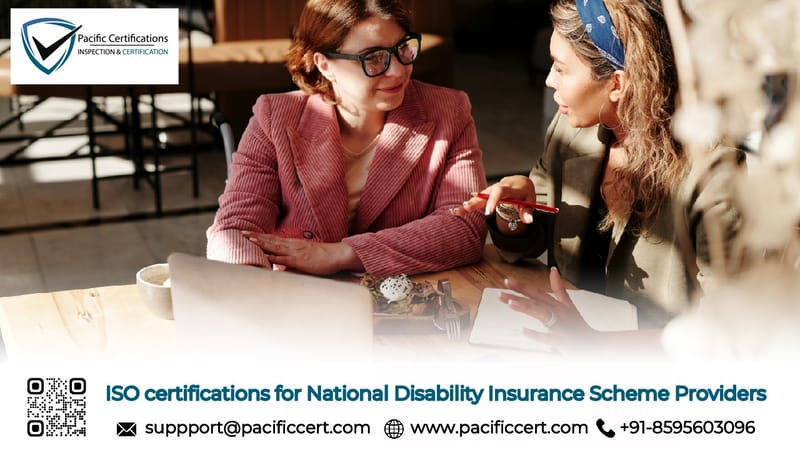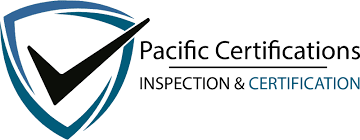ISO Certifications for National Disability Insurance Services, Requirements and Benefits

Introduction
National Disability Insurance service providers operate in a highly regulated, care-focused, and accountability-driven environment where service quality, participant safety, data protection, continuity of care, and ethical governance directly affect the well-being of vulnerable individuals. These organizations deliver a wide range of supports including personal care, therapy services, community participation, supported living, assistive technology, case coordination, and disability support programs across residential, clinical, and community settings.
As governments expand disability inclusion frameworks and funding models, expectations on disability service providers have moved beyond basic service delivery to structured management systems, measurable outcomes, risk control, safeguarding, and compliance with national and international standards. Participants, regulators, funding authorities, and partner organizations increasingly require demonstrable evidence of quality, safety, privacy, and continuity.
ISO certifications provide nationally funded disability service providers with internationally recognized frameworks to demonstrate consistent service delivery, workforce safety, data protection, risk governance, and long-term operational reliability.
In disability services, quality is not defined by policies alone, but by how consistently dignity, safety, and care are delivered every single day
Quick Summary
ISO certifications provide national disability insurance service providers with structured management system frameworks to manage service quality through ISO 9001, protect participant health and safety through ISO 45001, safeguard sensitive participant data through ISO/IEC 27001 and ISO/IEC 27701, ensure service continuity through ISO 22301, manage organizational risk through ISO 31000, and support environmental responsibility through ISO 14001. These certifications help disability service organizations deliver compliant, ethical, and dependable services while strengthening trust with participants, regulators, and funding bodies.
For more information on how we can assist your disability services organization with ISO certifications, please contact us at [email protected].
Applicable ISO Standards for National Disability Insurance Services
Below are the most relevant ISO standards applicable to disability support providers, care service organizations, therapy providers, and community support agencies:
ISO 9001: Quality Management Systems
ISO 9001 provides a structured framework for managing disability support services such as care planning, service delivery, incident handling, complaints management, participant feedback, and continuous improvement. For disability insurance services, ISO 9001 supports consistent care outcomes, participant-centered service delivery, and accountability across service locations and programs.
ISO 45001: Occupational Health and Safety Management Systems
Disability services involve manual handling, behavioral support, community travel, medication assistance, and in-home care activities. ISO 45001 helps organizations identify hazards, reduce injuries, and protect both care workers and participants. This standard is critical for managing workplace safety risks while maintaining high-quality care environments.
ISO 27001: Information Security Management Systems
Disability service providers handle highly sensitive information including medical records, care plans, assessment reports, funding details, and personal data. ISO/IEC 27001 establishes a risk-based framework to protect this information from breaches, misuse, and unauthorized access.
ISO/IEC 27701:2019 – Privacy Information Management Systems
ISO/IEC 27701 extends ISO/IEC 27001 to address privacy governance. It is particularly relevant for organizations managing participant consent, data sharing with government agencies, and third-party service coordination. The standard supports ethical data handling and compliance with national privacy laws.
ISO 22301:2019 – Business Continuity Management Systems
Continuity of care is critical in disability services. ISO 22301 ensures organizations can maintain or rapidly restore essential services during disruptions such as staff shortages, system outages, natural disasters, or public health emergencies.
Click here to find out more applicable standards to your industry
Contact us today to start your certification journey!
What are the Requirements of ISO Certifications for National Disability Insurance Services?
Disability service providers seeking ISO certification must establish and maintain documented policies, procedures, and records aligned with the selected ISO standards. Key requirements include the following:
ISO 9001:2015 – Quality Management Systems
Defined service delivery processes for disability support activities
Participant needs assessment and care planning controls
Monitoring of service effectiveness and participant satisfaction
Complaint handling and corrective action processes
Control of outsourced and allied health service providers
Performance measurement and continuous improvement
Internal audits and management reviews
ISO 45001:2018 – Occupational Health and Safety
Hazard identification for care and support activities
Risk assessments for manual handling, behavioural support, and community work
Safe work procedures and incident reporting
PPE identification and safety controls
Emergency preparedness for participant and worker safety
Worker induction, training, and competency management
ISO/IEC 27001:2022 – Information Security Management Systems
Identification of participant and health information assets
Information security risk assessments
Access control and data confidentiality measures
Secure record storage and system access management
Incident response and breach management
Data backup and recovery controls
ISO/IEC 27701 – Privacy Information Management
Privacy policies and consent management procedures
Controls for collection, storage, and sharing of participant data
Handling of data subject rights
Third-party data processing controls
ISO 22301:2019 – Business Continuity Management
Identification of critical disability support services
Business impact analysis for service disruptions
Contingency and recovery planning
Testing and review of continuity procedures
Tip:Start by one complete participant journey—from intake and assessment to service delivery, incident handling, and feedback—against ISO requirements to identify quality, safety, and compliance gaps early.
For further information on how we can assist your disability services organization with ISO certifications, contact [email protected].
What are the Benefits of ISO Certifications for National Disability Insurance Services?
ISO certifications are suitable for disability support providers, community service organizations, care agencies, and therapy providers. Key benefits include:
More consistent and participant-centred service delivery
Safer environments for participants and support workers
Stronger protection of sensitive personal and health data
Improved compliance with regulatory and funding requirements
Greater credibility with government agencies and stakeholders
Improved risk control and service continuity
The global disability services market continues to expand as populations age and disability inclusion policies strengthen. By 2030, disability and long-term care services are projected to represent over USD 2 trillion in annual global spending, driven by government funding, community-based care models, and expanded eligibility programs.
Digital transformation in disability services is accelerating, with increased use of electronic care records, remote service coordination, and data-driven funding oversight. At the same time, data protection risks and safeguarding requirements are intensifying. Studies indicate that healthcare and social services organizations face 30–40% higher data breach risk compared to other sectors.
Organizations that implement structured quality, safety, and information security management systems report 20–35% reductions in incidents, service disruptions, and compliance failures. ISO-aligned governance is expected to become a baseline requirement for disability service providers operating under national insurance or public funding models in the coming years.
How Pacific Certifications Can Help
Pacific Certifications, accredited by ABIS, acts as an independent certification body for national disability insurance service providers by conducting impartial audits against applicable ISO standards. Our role is to objectively assess whether documented management systems and operational practices conform to international ISO requirements, based strictly on verifiable evidence.
We support disability service organizations through:
Independent certification audits conducted in accordance with ISO/IEC 17021
Objective assessment of care processes, safety controls, and data protection measures
Clear audit reporting reflecting conformity status and certification decisions
Issuance of internationally recognized ISO certificates upon successful compliance
Surveillance and recertification audits to maintain certification validity
If you need support with ISO certification for your disability services, contact [email protected]or +91-8595603096.
Ready to get ISO certified?
Contact Pacific Certifications to begin your certification journey today!
Author: Ashish
Suggested Certifications:
Read more: Pacific Blogs

